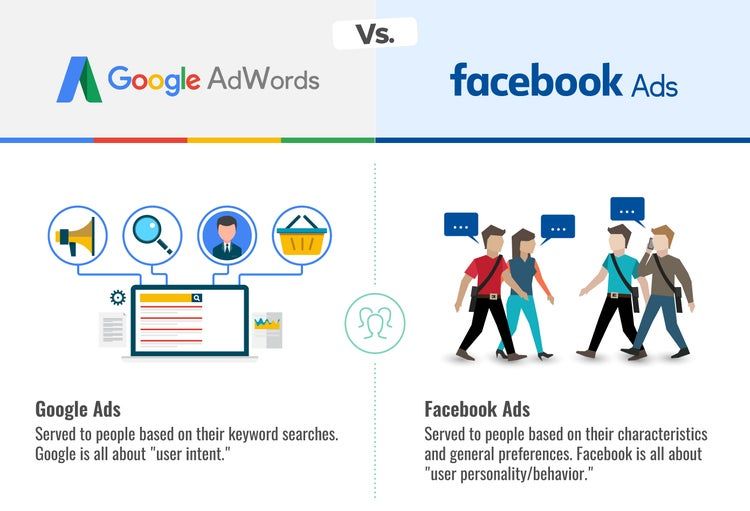When it comes to digital marketing, two platforms stand out among the rest: Facebook and Google. Both of these giants offer advertising solutions that can help businesses reach their target audience and drive conversions. But which platform is better for your business? In this article, we will compare Facebook Ads and Google Ads to help you determine which is the best fit for your marketing strategy.
1. Targeting Options
Facebook Ads are known for their extensive targeting options. With Facebook, you can target users based on demographics, interests, behaviors, and more. This allows you to create highly targeted ads that reach the right audience. On the other hand, Google Ads rely heavily on keywords for targeting. While Google Ads also offer some targeting options, they are not as robust as Facebook’s.
2. Ad Formats
Both Facebook Ads and Google Ads offer a variety of ad formats to choose from. Facebook Ads include options such as image ads, video ads, carousel ads, and more. These visually appealing ad formats can help you grab the attention of users and drive engagement. Google Ads, on the other hand, focus more on text-based ads. While Google also offers image and video ads, they are not as prominent as on Facebook.
3. Cost
When it comes to cost, Google Ads tend to be more expensive than Facebook Ads. This is because Google Ads operate on a pay-per-click model, meaning you pay each time someone clicks on your ad. Facebook Ads, on the other hand, can be more cost-effective, as they operate on a pay-per-impression model. This means you pay based on the number of times your ad is shown, regardless of how many clicks it receives.
4. Intent
One key difference between Facebook Ads and Google Ads is user intent. When someone performs a search on Google, they are actively looking for information on a specific topic. This means that users who click on Google Ads are often further along in the buying process. On the other hand, Facebook users are typically browsing the platform for entertainment or to connect with friends. This means that Facebook Ads are better suited for building brand awareness and generating leads, while Google Ads are better for driving conversions.
5. Analytics and Reporting
Both Facebook Ads and Google Ads offer robust analytics and reporting tools to help you track the performance of your ads. Facebook Ads provide insights into metrics such as reach, engagement, and conversions. Google Ads offer metrics such as click-through rate, conversion rate, and cost per click. Depending on your specific goals, one platform may provide more relevant data than the other.
Conclusion
Ultimately, the decision between Facebook Ads and Google Ads depends on your specific business goals and target audience. Facebook Ads are great for reaching a broad audience and building brand awareness, while Google Ads are better suited for driving conversions from users actively searching for your products or services. Consider your budget, target audience, and marketing objectives when choosing between the two platforms. And remember, you can always test both to see which performs best for your business.
By weighing the pros and cons of Facebook Ads and Google Ads, you can make an informed decision on which platform is the best fit for your business’s marketing strategy.

